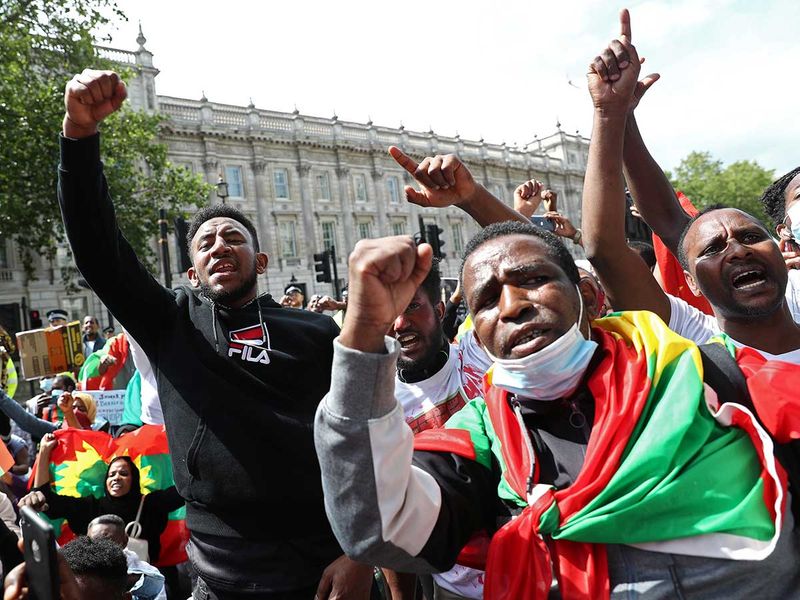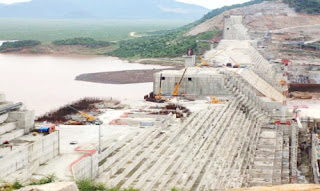Ethiopia’s Nobel winner can’t rest on his laurels
It’s not a good look on a Nobel Peace laureate. As protests raged in Ethiopia’s most populous region over the killing of a pop star, Prime Minister Abiy Ahmed ordered an internet blackout, preventing the rest of his country — and the wider world — from getting a complete picture of what was going on in Oromia.
This isn’t the first time Abiy, who collected his Nobel last year, has shut down the internet in Ethiopia. There were four such blackouts last year, more often than any other nation in sub-Saharan Africa. On the most bizarre of these occasions, the government cited exam cheating as the reason.
But no clampdown on communications can conceal the fact that the celebrated peacemaker is struggling to calm his own people. Nor can Ethiopia’s economic success, which has won Abiy praise abroad, paper over the country’s political grievances and ethnic rivalries, some of them unleashed by his ambitious reforms. These are threatening to stain Abiy’s Nobel laurel.
Slowing economic growth
Worse, they may jeopardise Ethiopia’s economic progress. Only last week, a revised outlook for 2020 from the International Monetary Fund had growth slowing to 1.9 per cent, the smallest increase since the great famine of 2003. Abiy, who was slow to respond to the coronavirus pandemic, has had to seek emergency funding from the IMF to deal with the crisis.
On top of everything else, the prime minister is bracing for his most difficult foreign-policy test since the peace accord with Eritrea that won him the Nobel. Relations with Egypt are near breaking point over a giant Ethiopian dam project on the Nile. At a virtual meeting of the United Nations Security Council last week, Egypt warned of conflict if Ethiopia proceeds with plans to fill the dam.
At home, political upheavals will probably worsen as the country feels the economic shock of the pandemic, combined with a devastating plague of locusts and floods caused by unusually heavy rainfall. This will complicate Abiy’s efforts to attract more foreign investors, especially to the private sector. (His government has been working toward setting up Ethiopia’s first stock exchange.)

One potentially dangerous political flash point is coming up next month, when the northern region of Tigray is planning to hold elections, in open defiance of the decision of Ethiopia’s election board to postpone the vote to next March. This scratches a painful political scab: The Tigray People’s Liberation Front, which runs the regional government, ruled Ethiopia for nearly three decades before Abiy’s election. Territorial disputes between Tigray and the region Ahmara are also expected to flare.
The prime minister has been struggling too with political tensions in Addis Ababa, where opposition groups are warning that the postponement of the first general election under Abiy — again, because of the pandemic — would create a constitutional crisis. The government’s mandate ends on October 10.
The last thing Abiy needed was fresh unrest among the people of his own ethnicity, the Oromo. Protests broke out in Addis Ababa and other parts of Oromia after musician Haacaalu Hundeessa was murdered on Monday by unidentified gunmen. His songs had been anthems of protest during the long years of political struggle leading to the overthrow of the previous government and Abiy’s elevation to office in 2018.
Source: Gulf News




Comments
Post a Comment